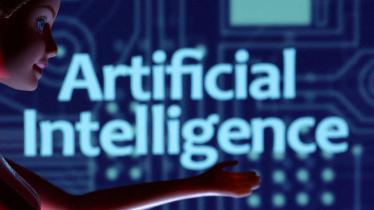The integration of artificial intelligence (AI) within human resources (HR) across various industries is significantly reducing the ratio of HR staff to employees. This shift towards leaner HR teams, driven by the adoption of advanced AI technologies, highlights a broader trend towards increased operational efficiency in HR practices, say analysts.
A recent study conducted across 10,000 companies showed that large organisations with a headcount of 1,000 to 9,000 now maintain an HR team ratio as low as 1.34, compared to smaller companies with around 250 employees, which have a ratio of about 4.43, Munira Loliwala, VP – strategy and growth at staffing firm TeamLease Digital told FE.
Further, mid-sized companies with 500 employees show HR ratios ranging from 2.95 to 2.6, she added.
“Generative AI is not just streamlining operations; it’s compelling the evolution of HR into a field where strategic expertise is crucial. Professionals in this area must now leverage AI to enhance employee engagement and overall productivity,” Loliwala said.
Approximately 1.8 million individuals are employed in HR roles across sectors such as IT services, manufacturing, BFSI, healthcare, logistics, and media, according to the study.
“It is also interesting to view the large variation in the HR Ratios within the Tech / IT sector that spike for a BPO setup business while the same is extremely low for a tech firm leveraging automation, thus a persistent reliance on intensive human-integrated resource management is highly crucial for specific businesses with the rise of its growth in the near future,” Loliwala said.
Most domestic IT services companies, including Tata Consultancy Services, Infosys, Wipro, and Tech Mahindra, have reveled that they have adopted AI in their respective HR departments.
However, as a silver lining, the adoption of AI in HR extends beyond mere automation. It is reshaping recruitment processes, making them more data-driven and significantly reducing the time required to fill positions from an average of 60-90 days to as low as 40 days.
“AI has not only enhanced the candidate lifecycle experience but has also made the recruitment process data-driven and SLE (Service Level Expectation) centric, reducing the overall timelines drastically,” Loliwala said.
Further, AI’s role in promoting diversity in the workplace is noteworthy. By automating and refining the recruitment process, AI tools help to eliminate biases that traditionally influenced hiring decisions. This not only fosters a more inclusive workforce but also enhances the overall quality of hires by focusing on a broader range of candidate qualities beyond traditional benchmarks.
However, with the introduction of AI, the skills required in HR are changing. “The roles are being displaced more than they are being eliminated,” Loliwala said. “HR professionals now need to understand data analytics and algorithmic reporting to thrive in this new environment.”
Despite the technological advances, the human element remains crucial. AI tools supplement HR functions by providing insights and automation, but strategic human oversight continues to be essential in managing employee relations and organizational culture.
